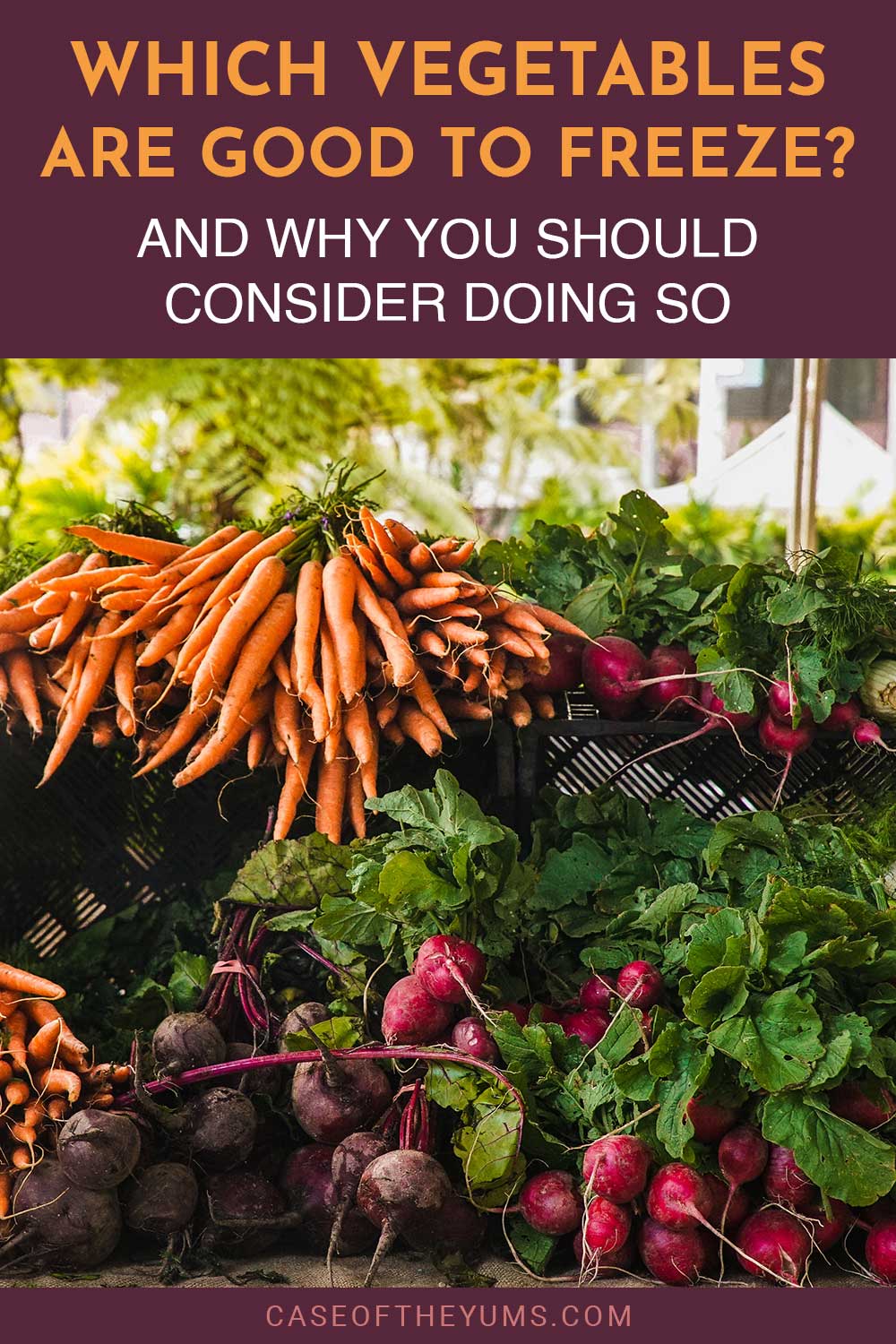Which Vegetables Are Good To Freeze? And Why You Should Consider Doing So
We may earn commissions for purchases made through links on our site. Learn more on our about us page.
Vegetables are the edible parts of plants. They consist of the leaves, the stems, the roots, the bulbs, the tubers, and the flowers. Vegetables play a very important role in human nutrition. They can be eaten raw or cooked and are widely available.
Nutritionists encourage people to eat vegetables as they are low in fat and carbohydrates. They are good sources of minerals such as calcium and iron and are high in vitamins.
Vegetables are also rich in dietary fiber and antioxidants. The recommended serving of vegetables is five or more portions a day.
Vegetables are prone to rapid aging and spoilage if not stored properly. However, dehydration, fermenting, freezing, canning, and pickling can increase their shelf life.

Which Vegetables Are Good To Freeze?
The best method of preserving the freshness and nutrients in vegetables is to freeze them. It is best to freeze vegetables when they are fresh, as this retains the flavor and nutrients in them.
The best vegetables to freeze are :
- Asparagus
- Broccoli
- Beets
- Brussels Sprouts
- Cauliflower
- Carrots
- Corn
- Fava Beans
- Green Beans
- Peas
- Leafy Greens – Spinach, Kale
Before embarking on freezing the vegetables, a few steps need to be followed. The vegetables will first have to be blanched. This means immersing the cleaned and cut vegetables in salted boiling water for 2 to 3 minutes.
The purpose of blanching the vegetables is to stop the action of enzymes that result in the product’s loss of flavor, texture, and color. Blanching also destroys any microorganisms that may be present on the surface.
The next step after blanching is to put the vegetables in cold water, also known as ‘shocking,’ to cool them down and prevent them from cooking. Once this is done, the vegetables can then be put in vacuum-sealed bags and frozen until needed.
For How Long Can You Keep Vegetables Frozen?
The duration of frozen vegetables depends on the preparation and storage method. Usually, vegetables can be frozen for up to 8 to 12 months. Beyond this time period, the quality of the vegetable deteriorates.
Where Should You Store Frozen Vegetables?
Frozen vegetables should be ideally stored in the freezer at a temperature of zero Fahrenheit or lower. Keeping the produce as cold as possible prevents ice crystals. When this happens, the vegetables become mushy when thawed out.
Making sure that the freezer has ample space so that the vegetables can freeze uniformly is another aspect to consider when storing frozen produce.
To store frozen leafy greens, using a baking tray with layers of grease-proof paper is ideal. It prevents the leaves from clumping together.
Are There Any Vegetables That Should Not Be Frozen?
Vegetables that have a high concentration of water should never be frozen. This is because the water content will freeze and then expand, forming ice crystals that ruin the vegetables when they are thawed.
Vegetables that should not be frozen are:
- Celery
- Citrus Fruits
- Cucumbers
- Green Peppers
- Lettuce
- Parsley
- Potatoes
- Radishes
- Tomatoes
- Watermelon
Will The Taste Of Vegetables Change If I Freeze It?
If properly frozen, vegetables can retain their color, texture, and flavor. How good the vegetable taste will depend on how fresh they were when they were frozen. Usually, once the vegetables are thawed and cooked, their taste is not different.
Steaming or stir-frying frozen vegetables is the best way of keeping the flavor intact. However, the longer the vegetables are frozen and then used, the difference in texture and color will be noticeable.
To maintain a satisfactory level of taste in the frozen vegetables, it is best to consume them within a reasonable freezing time frame.
Final Thoughts on Vegetables Good for Freezing
Freezing vegetables is the easiest, most versatile, and most convenient method of preserving them. Nowadays, vegetables are flash-frozen as soon as they are harvested, thus ensuring that all the nutrients are preserved.
An advantage of freezing vegetables is that you can consume them even when they are out of season. This adds a variety to the diet. Freezing vegetables can also extend their shelf life and, in the long run, can prove to be economical.



Leave a Reply
You must be logged in to post a comment.